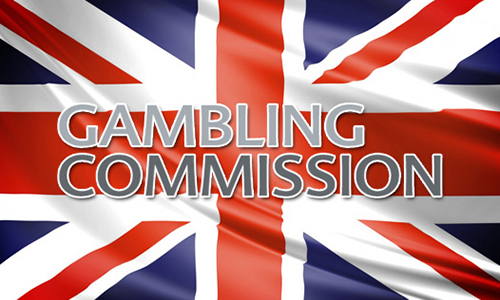UKGC Releases Major Problem Gambling Behavior Report
The United Kingdom Gambling Commission (UKGC) has released the findings of a major study on gambling behavior, including problem and addictive gambling. The study began in 2015 and included respondents in England, Wales and Scotland, and is the largest such study on the gambling behavior of UK citizens since a similar study conducted in 2010, the results of which were published in 2012.
 The top line is that not too much has changed over the intervening five years. Problem gambling, as defined by psychological definitions used within the study, rose to 1.4% of the nation’s gamblers between 2010’s study and this week’s report, offered to the public late last week. That’s technically a 33% rise, from 2010’s figure of just over 1%, but the bump falls into generalized margin-of-error findings.
The top line is that not too much has changed over the intervening five years. Problem gambling, as defined by psychological definitions used within the study, rose to 1.4% of the nation’s gamblers between 2010’s study and this week’s report, offered to the public late last week. That’s technically a 33% rise, from 2010’s figure of just over 1%, but the bump falls into generalized margin-of-error findings.
Perhaps more relevant is that the total percentage of “at-risk” gamblers was reported at 6.4% of those who engage in gambling activities, or about 3.9% of the general adult population, defined for this study as anyone age 16 or over. That’s just about the same as in 2010, per the study’s overview. The announcement by the UKGC included these bullet points as “headline findings”:
- 1.4% of gamblers were classed as problem gamblers (0.8% of the population), with 6.4% at-risk (3.9% of the population) – which is similar to the rate published in the 2012 report;
- Problem gambling was more prevalent among people who had participated in a multiple gambling activities in the past year, than those that had just participated in one;
- 63% of adults (aged 16 and over) in Great Britain had gambled in the past year;
- Men (66%) are more likely to gambling than women (59%);
- Most popular gambling activities were: National Lottery draws (46%), scratchcards (23%) and other lotteries (15%);
- Overall participation was highest among the middle age groups and lowest among the youngest and oldest age groups;
- Those in employment or training were more likely to gamble (69%);
- Participation by those unemployed was at 56% and 57% for those retired.
Source: “New Gambling Commission research shows more progress needed to tackle problem gambling“
One finding that didn’t make it into the headline notes was that men were seven-and-a-half times more likely to be identified within the study as problem gamblers (1.5% to 0.2%), despite the fact that a man was only about 10% more likely than a woman to partake in gambling activities in general. Whether and cultural or selection bias plays into that is unknown; the study itself includes caveats that due to the nature of the research, largely based on self-reported behavior, certain categories of behavior are possibly subject to at least a mild underreporting.
In that sense, both the mild rise in problem gambling is entirely explainable. Gambling activity has gone a bit more mainstream in recent years, meaning there’s greater accessibility to gambling activity. There may also be less social stigma attached to correctly self-reporting gambling activity within the framework of a national survey.
Inside the lengthy 68-page report itself, the headline points are peeled open to a greater extent. Here’s the first layer of that onion, the overview of the findings on the UK’s “at-risk” and “problem” gambling populations:
At-risk gambling
- At-risk gambling was measured using the Problem Gambling Severity Index (PGSI). This identifies people who are at risk of problems related to their gambling behaviour but who are not classified as problem gamblers.
- Overall, 2.8% of adults were classified as low risk gamblers (a PGSI score of 1 or 2) and a further 1.1% as moderate risk gamblers (a PGSI score of 3 to 7), meaning that, overall, 3.9% of adults had a PGSI score which categorised them as at-risk gamblers.
- Rates of low risk and moderate risk gambling were higher among men than women and were higher among younger age groups.
Problem gambling
- Problem gambling is gambling to a degree that compromises, disrupts or damages family, personal or recreational pursuits. Estimates of problem gambling are provided according to two different measurement instruments, the Diagnostic and Statistical Manual of Mental Disorders IV (DSM-IV) and the PGSI.
- According to the DSM-IV, problem gambling prevalence among adults living in private households was 0.7%. Men were more likely than women to be classified as a problem gambler according to the DSM-IV (1.3% and 0.2% respectively).
- According to the PGSI, problem gambling prevalence was 0.6%, with men again being more likely than women to be classified as a problem gambler (1.1% and 0.1% respectively).
- Problem gambling prevalence measured by either the DSM-IV or the PGSI was 0.8%, with men being more likely than women to be classified as problem gamblers (1.5% and 0.2% respectively).
- The highest rates of problem gambling were among those who had participated in spread betting (20.1%), betting via a betting exchange (16.2%), playing poker in pubs or clubs (15.9%), betting offline on events other than sports or horse or dog racing (15.5%) and playing machines in bookmakers (11.5%).
- Problem gambling was more prevalent among people who had participated in a number of gambling activities in the past year (prevalence was 11.9% for those who participated in seven or more activities compared to 0.3% of those who had taken part in just one gambling activity in the last year).
We’ll examine several gambling areas in a follow-up post, touching on poker, sports betting, and the pernicious FOBTs (fixed odds betting terminals), which have been the target of a fierce public-opinion backlash in the UK in recent years.




















COMMENTS